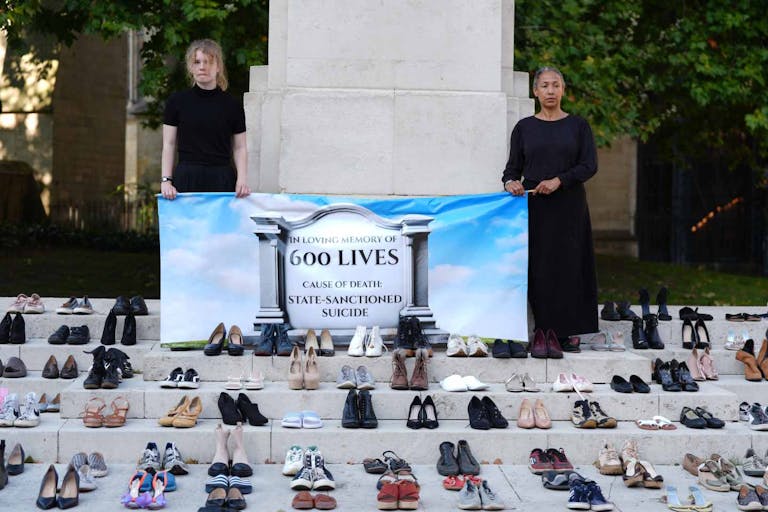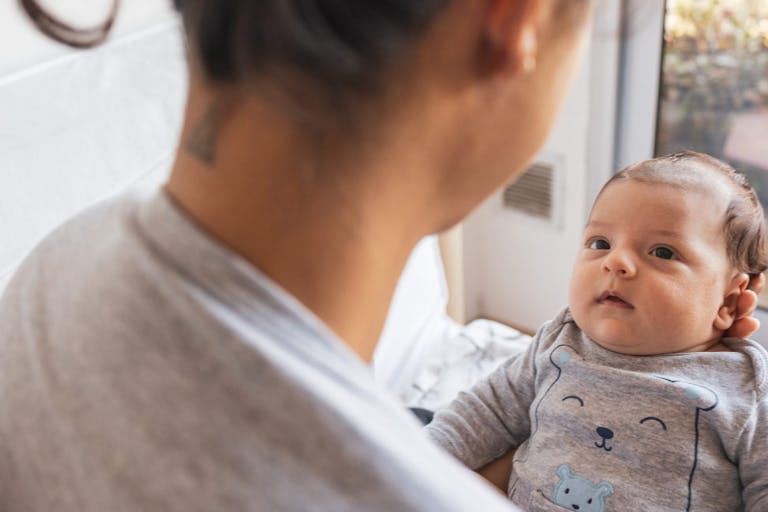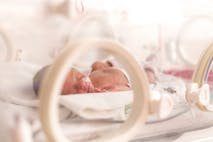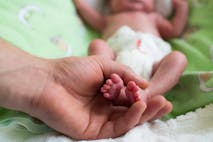
International group warns against normalizing assisted suicide and euthanasia
Angeline Tan
·
Human Interest·By Amanda Vicinanzo
Missouri program gives incarcerated moms a chance to stay with their babies
For many incarcerated women, giving birth behind bars has long meant an immediate and painful separation from their newborns. But in Missouri, a new initiative is changing that. This month, the state’s first-ever prison nursery opened at the Women’s Eastern Reception, Diagnostic and Correctional Center in Vandalia.
Missouri now joins nine other states with similar programs, including California, Illinois, Indiana, Nebraska, New York, Ohio, South Dakota, Washington, and West Virginia.
The program, passed through bipartisan legislation in 2022, allows eligible mothers to keep their babies with them for up to 18 months—giving them a chance to bond while also preparing for life after prison.
Pro-life advocates, including lobbyist Sam Lee, helped garner cross-party support for the bill. Lee, who did not draft the bill but worked to build consensus, described the effort as one of his most rewarding.
“It’s easy to think that lawmakers and lobbyists are always at odds, but sometimes they come together to work toward a shared goal,” Lee told the Missouri Independent. “This is one of those moments where people put aside their differences and made a real change.”
Jeff Smith, a former lawmaker and American Civil Liberties Union lobbyist, recalled the surprise when he and Lee worked together to pass the bill. “We got more than one double take when we’d walk together into a Senate office,” Smith said.
Article continues below
Dear Reader,
In 2026, Live Action is heading straight where the battle is fiercest: college campuses.
We have a bold initiative to establish 100 Live Action campus chapters within the next year, and your partnership will make it a success!
Your support today will help train and equip young leaders, bring Live Action’s educational content into academic environments, host on-campus events and debates, and empower students to challenge the pro-abortion status quo with truth and compassion.
Invest in pro-life grassroots outreach and cultural formation with your DOUBLED year-end gift!
The program has drawn strong support from both current and former inmates, such as Tara Carroll, who gave birth in 2022 while incarcerated. Carroll, now one of five caregivers in the program, said, “This program is going to give women the building blocks to live a better life. And that is going to overflow into their children, and their children’s children.”
The newly renovated nursery wing is housed in a separate area from the general prison population and is designed to be as supportive as possible. Soft flooring makes it easier for little ones to learn to walk, colorful murals brighten the space, and a fully equipped Infant Development Center ensures that babies have access to proper care. Mothers in the program also receive parenting classes, therapy, and job training to help them successfully transition out of prison.
Kim Perkins, who manages the nursery program, believes it will make a real difference. “This is going to be transformative for the women who come through this program,” she said in a press release. “I believe we are going to see huge changes in the lives of the women — and reduced recidivism rates — because they’ll be leaving with a strong bond with their baby.”
According to a Government Accountability Office report, incarcerated pregnant women face unique challenges, with about 4-5% reporting pregnancies at the time of admission. Many struggle with accessing maternal healthcare and maintaining bonds with their babies. Programs like Missouri’s prison nursery are increasingly seen as essential for improving both maternal and child well-being.
In fact, Nebraska, which launched its program in 1994, found that women who participated saw a 28% reduction in recidivism, a 39% reduction in returning to prison, and savings of more than $6 million over the first 10 years.
Programs like these are proving that keeping mothers and babies together can make a lasting impact.
Live Action News is pro-life news and commentary from a pro-life perspective.
Contact editor@liveaction.org for questions, corrections, or if you are seeking permission to reprint any Live Action News content.
Guest Articles: To submit a guest article to Live Action News, email editor@liveaction.org with an attached Word document of 800-1000 words. Please also attach any photos relevant to your submission if applicable. If your submission is accepted for publication, you will be notified within three weeks. Guest articles are not compensated (see our Open License Agreement). Thank you for your interest in Live Action News!

Angeline Tan
·
Human Interest
Angeline Tan
·
Human Interest
Bridget Sielicki
·
Human Interest
Nancy Flanders
·
Human Interest
Nancy Flanders
·
Human Interest
Nancy Flanders
·
Human Rights
Amanda Vicinanzo
·
Human Interest
Amanda Vicinanzo
·
International
Amanda Vicinanzo
·
Issues
Amanda Vicinanzo
·
Newsbreak
Amanda Vicinanzo
·